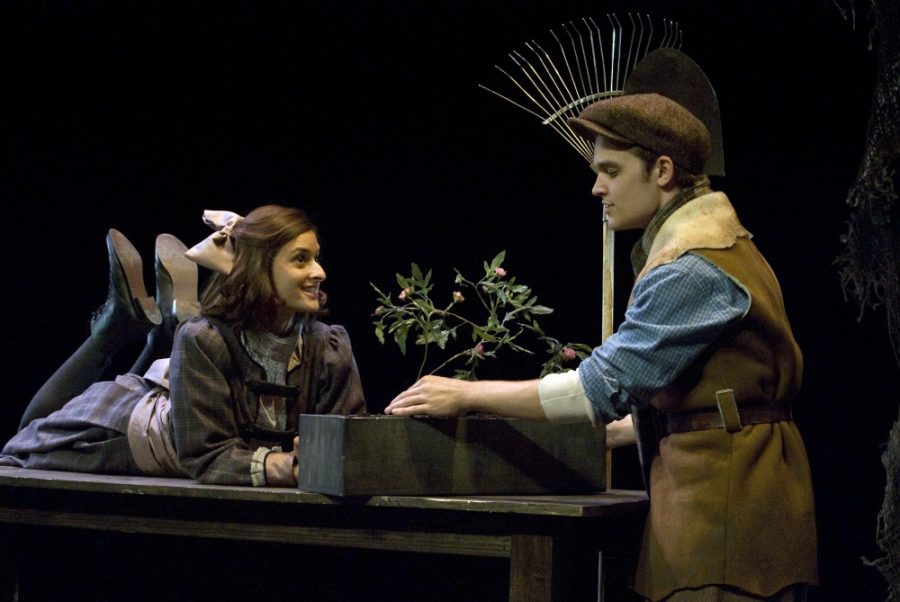While the cast is enthusiastic, no amount of tending can save Arizona Repertory Theatre’s “The Secret Garden” from the show’s inherent flaws: an obsession with spelling out theme, a lack of character development and a slew of needless songs.
Based on Frances Hodgson Burnett’s book of the same name, the show opens in India with a girl, Mary Lennox, played by Erin Asselta, waking from a horrible dream and being told her parents are dead from a cholera outbreak. She is then sent to live with her depressed uncle Archibald in England.
This takes four clunky songs to explain.
To make things even worse, a chorus of ghosts appears in almost every scene. The ghosts are rarely creepy, slow the pace and seem to be there mostly to remind the audience, as if it could forget, that the show is dealing with death.
As Lennox explores her new home, she hears of a garden that belonged to her deceased aunt Lily.
“The Secret Garden” is not without its bright spots — most notably, Brenna Wagner in the role of Martha, Lennox’s chambermaid. Wagner’s humor, energy and chemistry with Asselta rescue the show from a dreary and at times confusing start.
This is a common pattern for the production. It gets slow and the actors admirably fight to pick it back up, but ultimately fail.
The stakes never seem high and Asselta, while good with humor, doesn’t ever blossom in the role of Mary.
Zachary Karon, who plays Colin, the cousin who is thought to be crippled, has a sharp sense of comedy and it is a shame his character never develops beyond the comedic. His most dramatic moments are more symbolic than emotional. It would have been nice to see what Karon could do with meatier material.
The show’s best number is “A Bit of Earth” sung by Archibald, played by Patrick Spencer. His beautiful and heartfelt “A Bit of Earth” picks the show back up toward the end of a drooping first act.
After Spencer’s number comes the show’s strongest moments, during which actors are working together and the show finally flourishes. “Lily’s Eyes,” a song sung by Archibald and his brother Dr. Neville Craven, played by Frank Camp, is sad not only because of its subject matter, but because it showcases the brother who, despite being one of the show’s most interesting characters, is left unexplained.
Camp’s performance as Dr. Craven is difficult to read but this is clearly because he is given so little to work with, despite hints of a rich set of motivations and backstory in the song “Lily’s Eyes.”
As the first act closes, the chorus is chilling as they hauntingly sing the lyrics, “Mary, Mary quite contrary, how does your garden grow?” All of this energy pays off when Mary finds the garden in the first act’s end. This is the show’s most stunning moment, both visually and emotionally, and it gives hope that the show will reach new heights after intermission.
This is not the case. The second act plunges into the melodramatic, where more time is spent on characters reiterating the same problems. The show’s most crucial moment, a duet of “How Could I Ever Know” between Archibald and Lily’s ghost (played by Erica Renee Smith), is the worst offender.
The song’s lyrics aren’t powerful enough to explain Archibald’s change of mind and Smith, dressed in what appears to be the dress from Disney’s “Tangled,” brings little in the way of emotion.
The end result is a finale that feels cloying and unearned.
Grade: C









